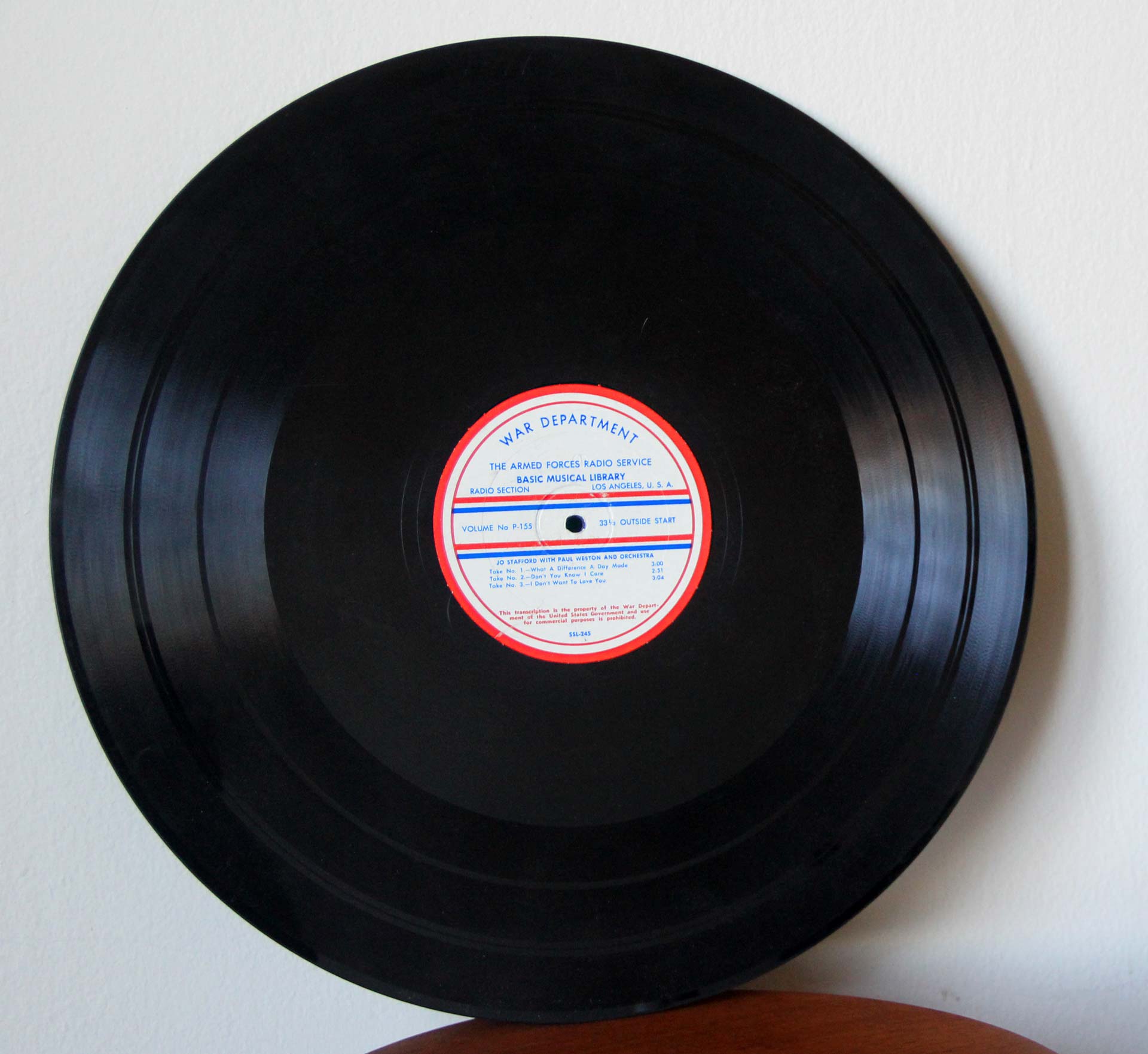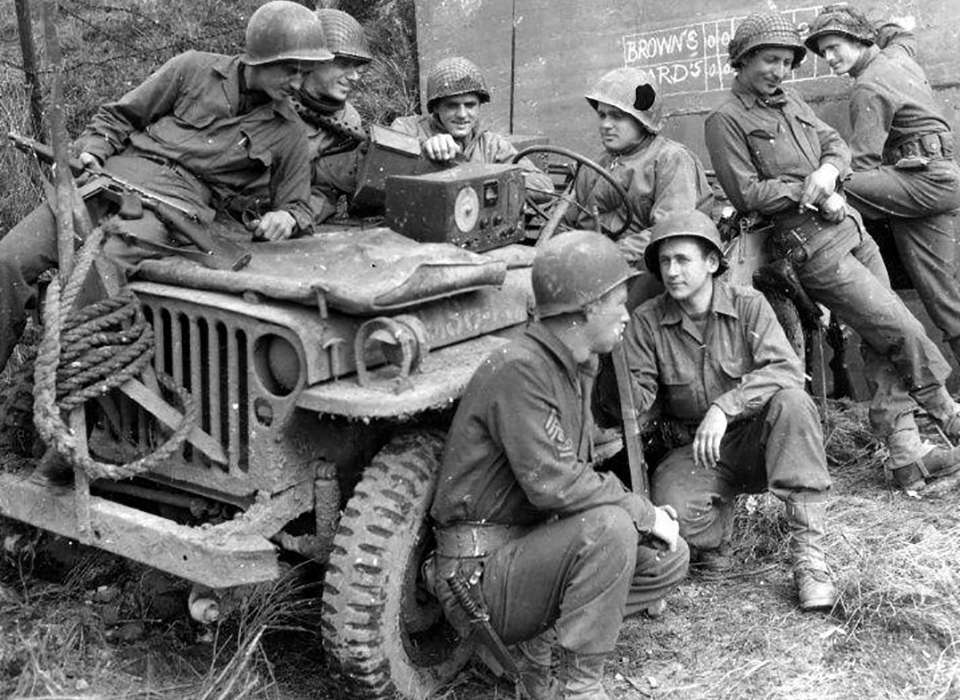
One of hundreds of thousands of different 16-inch 33⅓rpm records
produced by the Armed Forces Radio Service for the Armed Forces Network from
1943 until the mid-1980s when it switched to tape cassettes, at which point
all the records were supposed to be destroyed but luckily some
were saved. These records are bigger than a large pizza!
Later generations of AFRS
(later AFRTS) records would say "War and Navy Department" (and in some cases
just "Navy Department"), and finally "Department of Defense".
Click the Enlarge button on top of the image to see the record closer up, or
CLICK HERE to see a super-high resolution
image. The disk is undated, but it's from 1945 because that's when
these songs were recorded. Jo Stafford was the
kind of singer our parents listened to; even if you don't remember her or
recognize the name, some of her songs are probably engraved in your mind
such as You Belong to Me ("See the pyramids along the Nile..."). If
you had a stay-at-home mom in Frankfurt, she probably had the radio tuned to
AFN all day and this is the kind of music they mostly played, so even though
we teens preferred other kinds of music, we know many of these "old
standards" by heart.
Btw, there's enough space left on this side for one or two more songs, but
the non-commercial AFRS didn't feel compelled to fill up every disk. The
other side (Red Norvo Quartet) has four tracks with not much room left for
another.
WAR DEPARTMENT — The Armed Forces Radio Service Basic Music Library,
Radio Section, Los Angeles, U.S.A. Volume No. P.155, 33⅓ Outside
Start. Jo Stafford with Paul Weston and Orchestra:
- What A Difference A Day Made (3:00)
- Don't You Know I Care (2:51)
- I Don't Want To Love (3:04)

Listening to AFN during WWII*
| |
Jo Stafford was affectionately called "G.I. Jo" because of her extensive USO touring during the War and early postwar.
Read more about the Armed Forces Radio service and its discs.
| * | AFN broadcasts were heard in England during the war, for American military personnel who were there (one-to-two million of them). AFN stations were set up in France before war's end after the Germans were driven out, and in Germany itself two months after the European war ended in May 1945 (read more). |